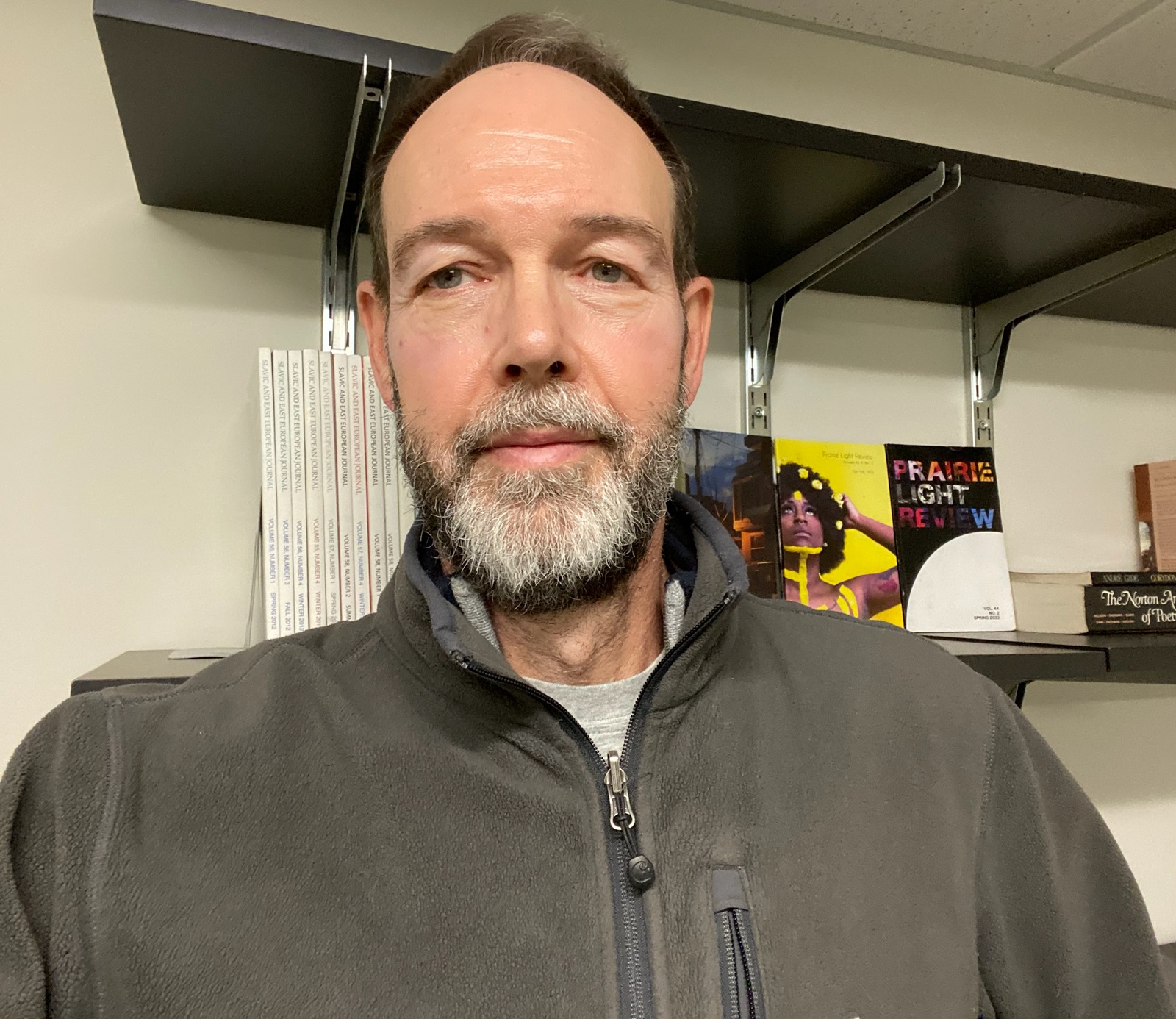Dr. Michael Slager teaches students how to write from day one (12/5/2023)

Dr. Michael Slager began teaching at Loyola in 2014. His first role was as a second language instructor with the English Language Learners Program (ELLP). Since 2016, he has been teaching English 100: Developmental Writing and tutoring international students at Loyola’s Writing Center.
Developmental writing courses focus on helping students enhance their writing abilities. Dr. Slager expresses his commitment to teaching students how to write, whether that be because English isn’t their first language or because they need to develop their writing skills before taking core curriculum courses.
He says he thinks he was asked to teach developmental writing because there are a lot of similarities between teaching English to students who have spent their formative years outside of the US and students who might have spoken another language at home.
Dr. Slager says one of the focuses of his developmental writing courses is on grammar, with the hope that the students will learn the necessary writing skills by going through the basics at a slower pace in a less page-heavy course than UCWR 110.
His students start by writing a personal literacy narrative because “everybody likes to write about themselves, and it’s a comfortable thing to do while also learning about basic essay structure and grammar,” he says. After that, the students do short literary analyses to learn how to discuss, identify, and analyze literary texts. This year, he is having his students read Sandra Cisneros and Kate Chopin. The students’ last assignments are a synthesis essay and a short research paper.
Dr. Slager says that he learns a lot from his students, especially when seeing their confidence.
“I think what I have [learned] from them is that the more confident they are, the better they do. It is a very simple observation, but it’s sort of in my bones now,” he says. “I'm able to see most of the students’ progression through the course of the semester. The more they realize that they can do and understand these things, the better they do. I’ve learned that it’s just as important to foster their belief in themselves as it is to teach content. You can’t do one without the other.”
His own foreign language studies have helped him understand how challenging and frustrating it can be to learn another language in a country that is not one’s own.
“Acclimating to a new culture isn't just about language. There's so much else that has to be taken into consideration,” he says. “There are all kinds of frustrations along the way and a high sense of self-consciousness. I think once that self-consciousness starts to go away, then people are like, ‘OK, I have a home now. I feel comfortable here.’ So, cultivating confidence as much as I possibly can is super important for their learning in general.”
Russian literature and culture are what attracted Dr. Slager to study foreign language. He attributes his interest in that field to wanting to understand what was “on the other side” of Western culture through Eastern European literature.
Dr. Slager’s current work is focused on social issues but more geared toward looking at the surprising level of agreement among Americans when addressing and solving big-ticket problems in the country. He specifically writes about poverty and inequality, topics which he explores in a new book he’s co-authoring. He also plans to write a book about the literary rendering of poverty as social commentary in the work of nineteenth-century Russian novelist Fyodor Dostoevsky.
